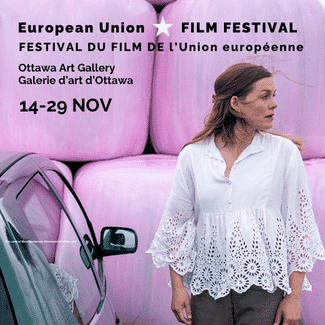On March 15, “The Echoes of the Motherland: Black Out Loud Volume II” celebrated the beauty and diversity within the African diaspora through musical performances and visual art.
The event was organized by Diana Official, the founder of Out Loud Creative | Créativité À Tue Tête and president of the St. Paul University student union. Out Loud held its debut event in March last year, and made its return at the Atelier d’innovation social Mauril-Bélanger in Ottawa.
“By recognizing and honouring the diverse roots of African heritage, whether they stem from Central America, the Caribbean, or the continent of Africa itself, the event creates a space for people to connect across cultures and share their experiences,” Official writes in an email.
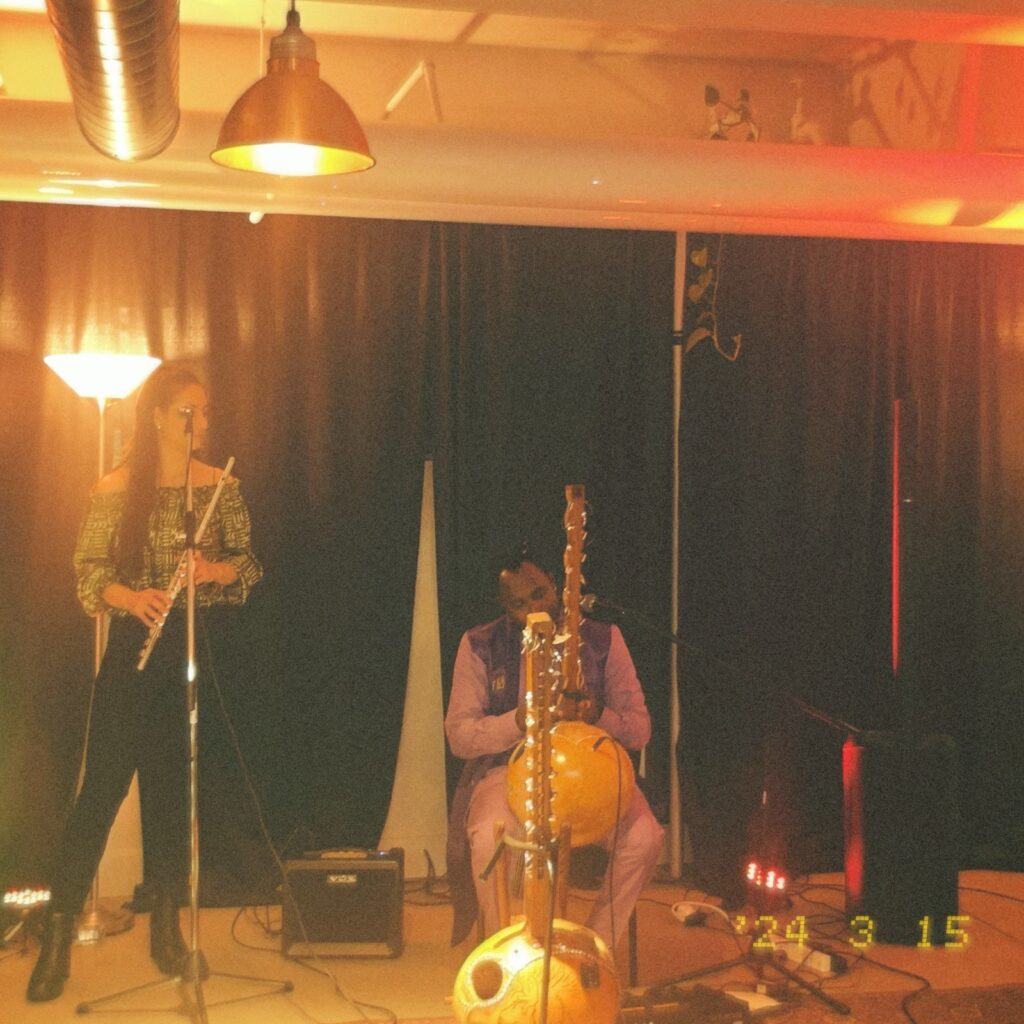
Alina Saran (left) and Siaka Diabaté (right) at “The Echoes of the Motherland” on March 15. Photo: Dominique Gené.
Siaka Diabaté, joined by Canadian cellist and composer Raphael Weinroth-Browne, delivered a stunning performance of contemporary jazz infused with African roots. Diabaté, playing the kora—a string instrument that originated from West Africa—alongside the flute and the cello, spoke to the exclusion of traditional African music in the classical music discourse. The band also included flautist Alina Saran and drummer Andrew Ferderber.
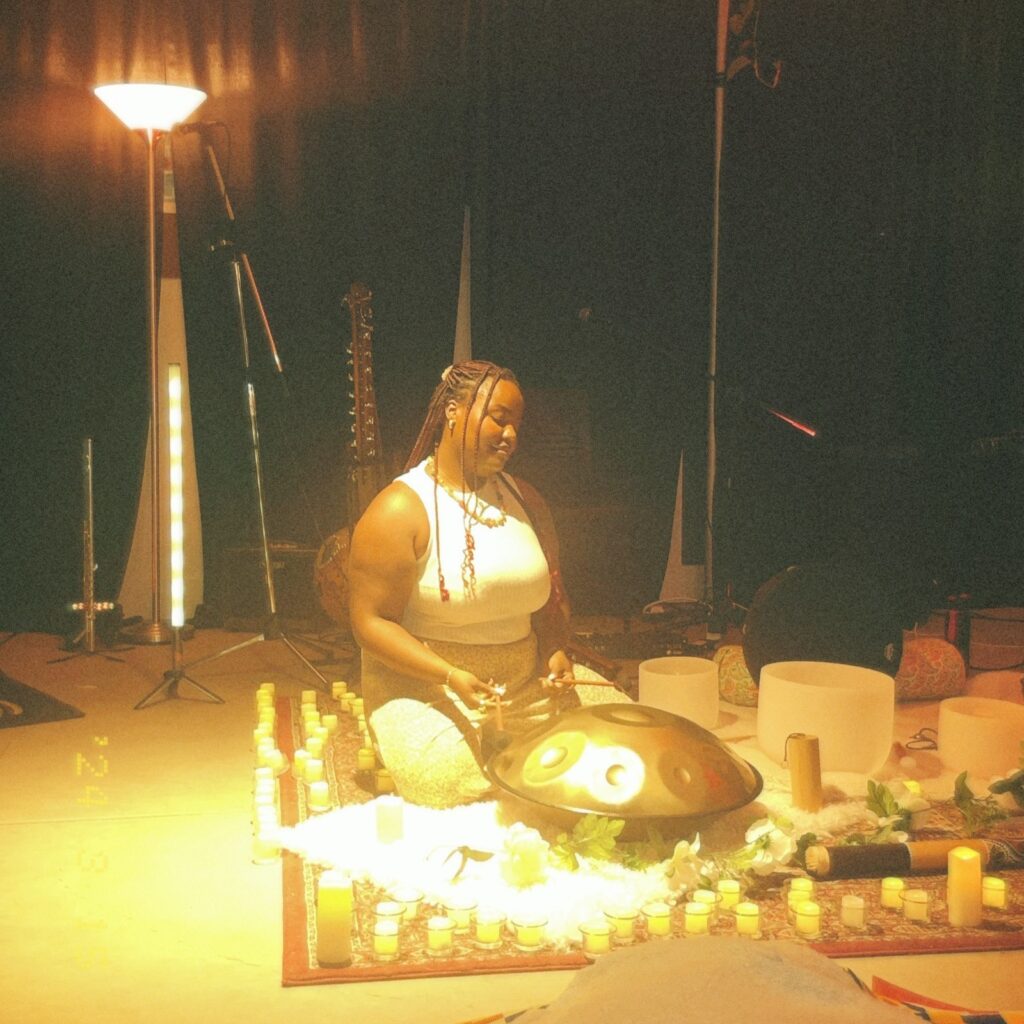
Pamela Twagirayezu, also known as Burning Moon Collective. Photo: Dominique Gené.
Pamela Twagirayezu, also known as Burning Moon Collective, guided the audience through a sound bath meditation, employing sounding bowls and chanting to evoke a state of relaxation and foster healing.
The showcase also included performances from poet griot Éric Topzo and saxophonist Jacobs Adebayo.
Not far from the stage was an exhibition by multidisciplinary artist Charifa Labarang. “The Cost of Buying” serves as a social commentary on the impact of fast fashion and overconsumption.
“I wanted to highlight the fact that we’re really disconnected from the raw materials and the final products that we get,” Labarang says.
The exhibit is arranged akin to a retail store, featuring dresses crafted with plastic bottle caps and wrappers. Each piece comes with a tag containing a QR code, which directs viewers to documentaries exposing the exploitation and displacement of Congolese people connected to cobalt mining and the mistreatment of garment workers.
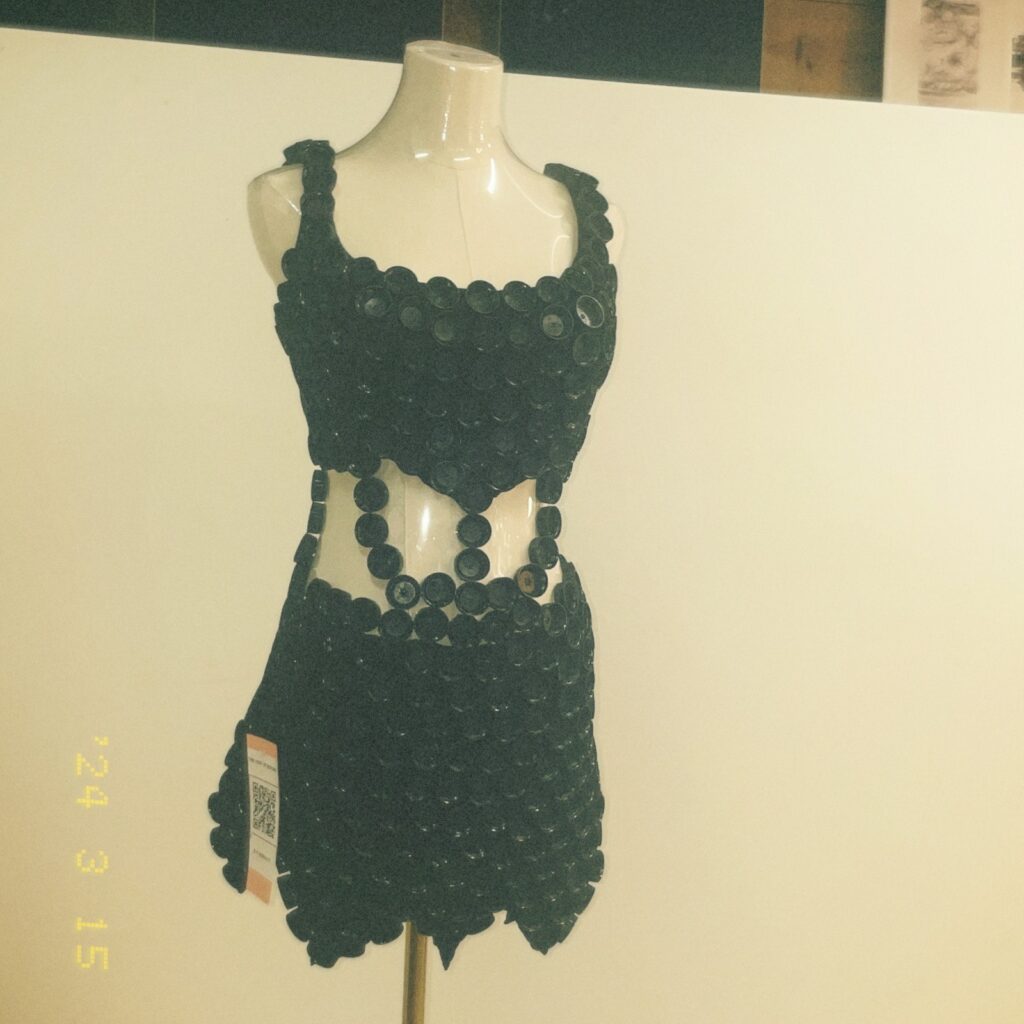
A piece from Charifa Labarang’s exhibition “The Cost of Buying”. Photo: Dominique Gené.
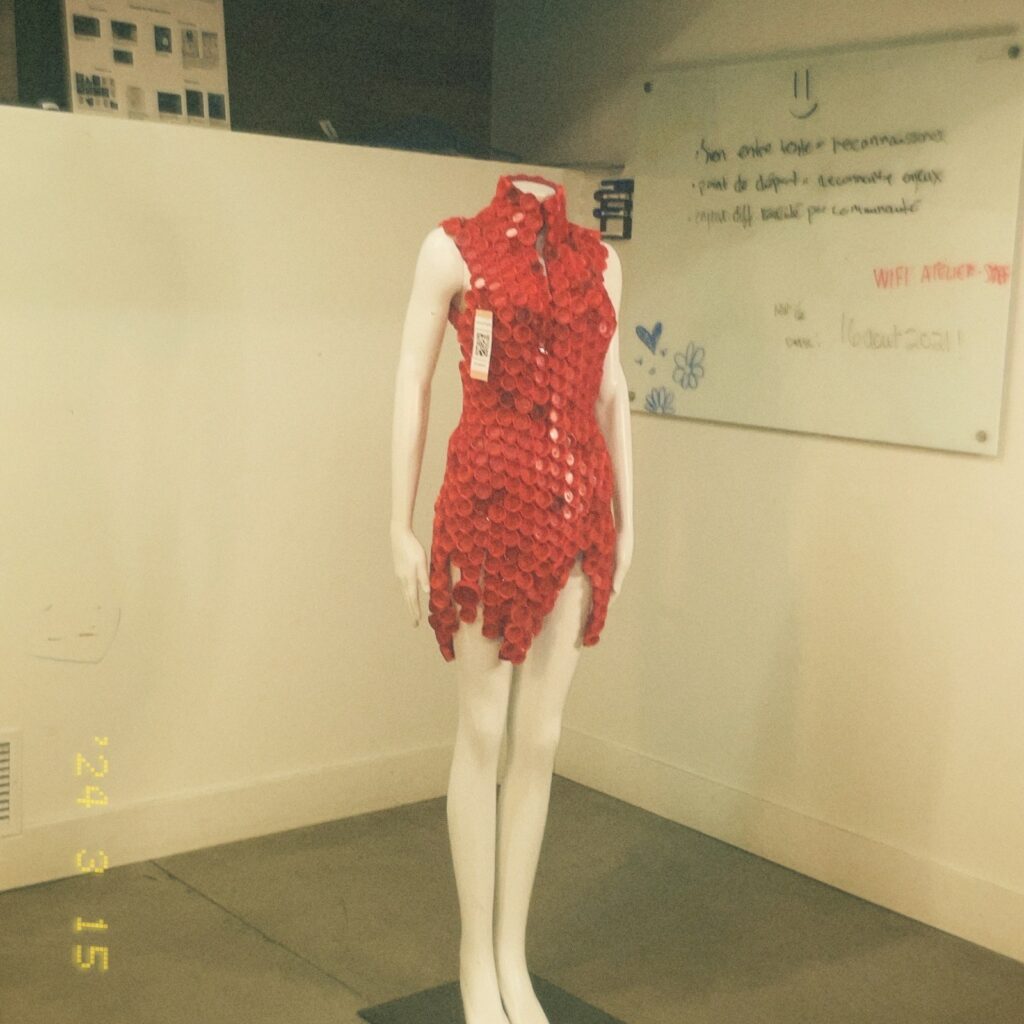
A piece from Charifa Labarang’s “The Cost of Buying”. Photo: Dominique Gené.
“When you look at an item and you think, ‘Oh my God, I really love this! Let me see how much it costs,’ that’s not the true cost. The true cost is the people involved, the materials that were stripped away from a country that you’ve never even heard about,” Labarang says.
Events like “The Echoes of the Motherland” offer audiences the chance to engage fully in celebrating African cultures through various avenues including visual art, musical performances, culinary delights, and more.
Official says she hopes people will be inspired to “embrace their own identities, celebrate diversity, and contribute to the collective melting pot of Canada with empathy, respect, and an open mind.”









